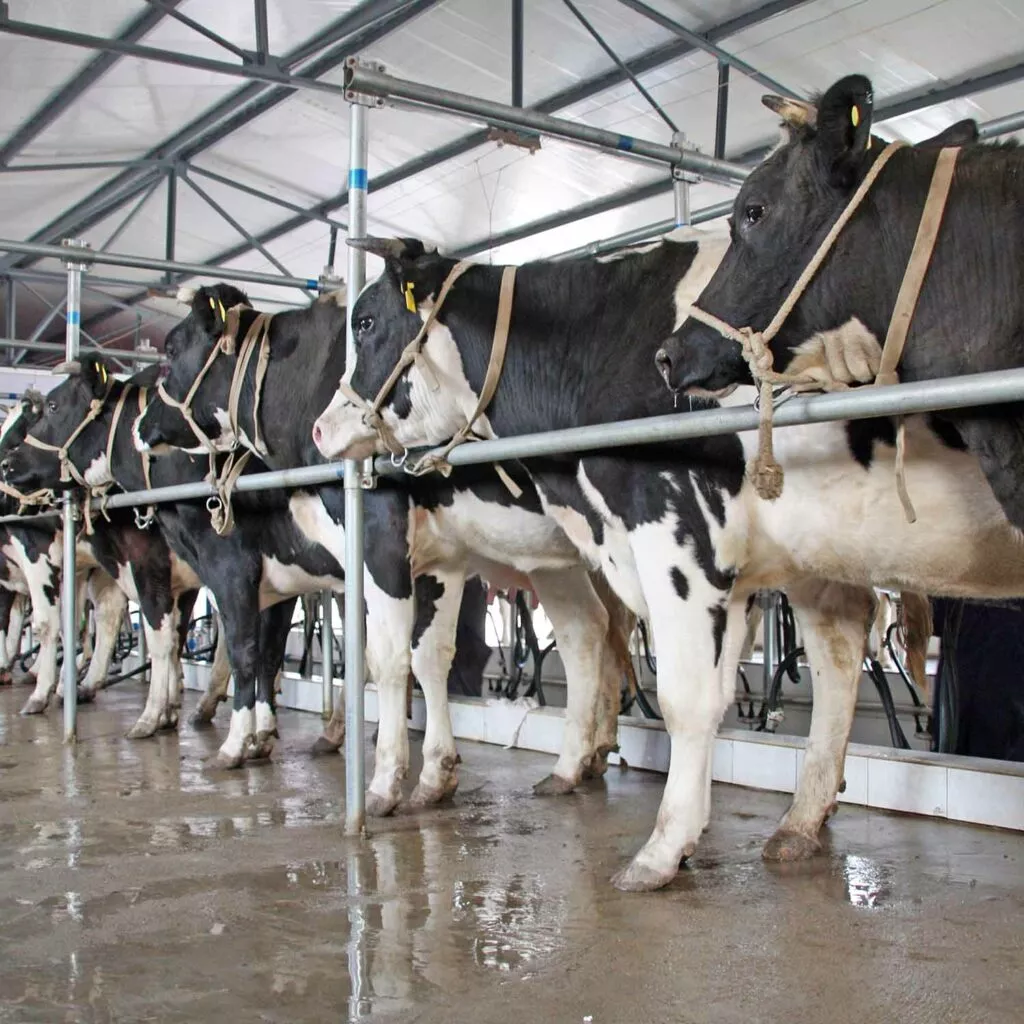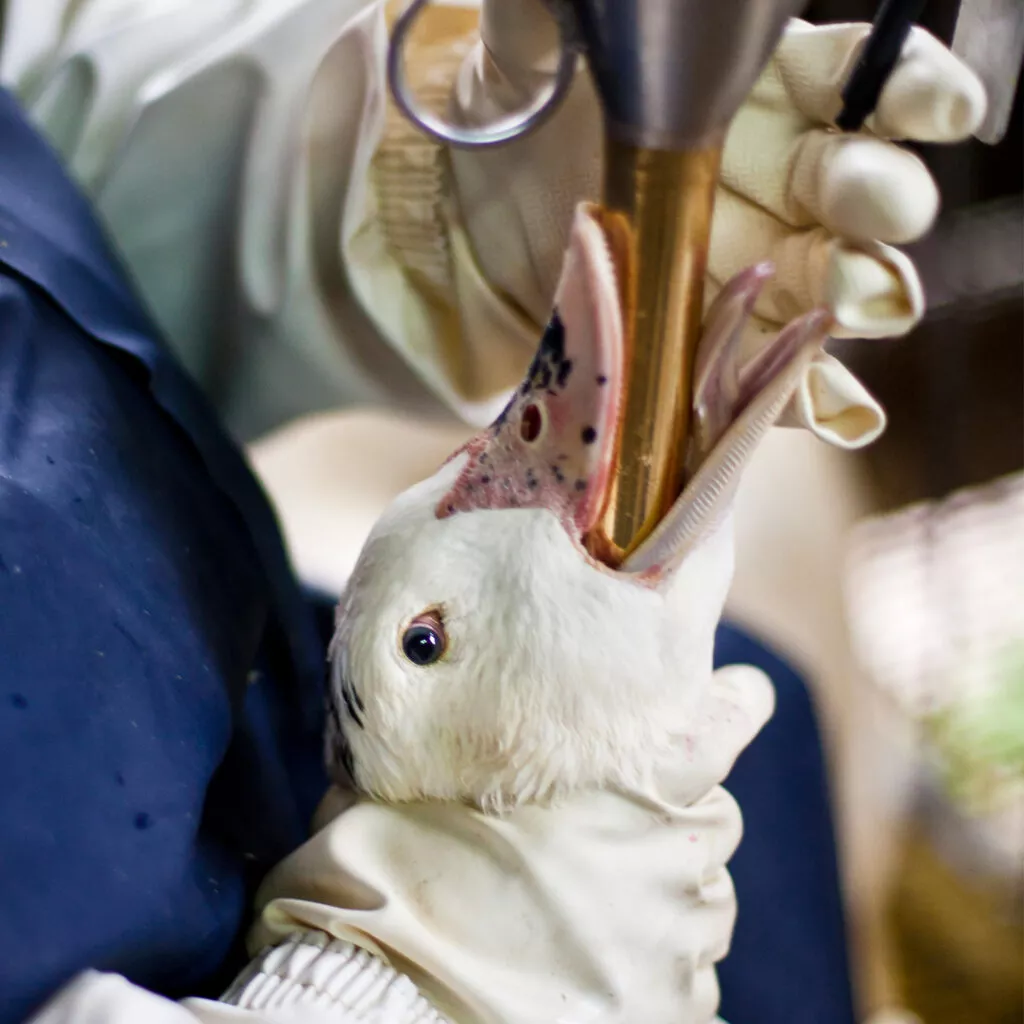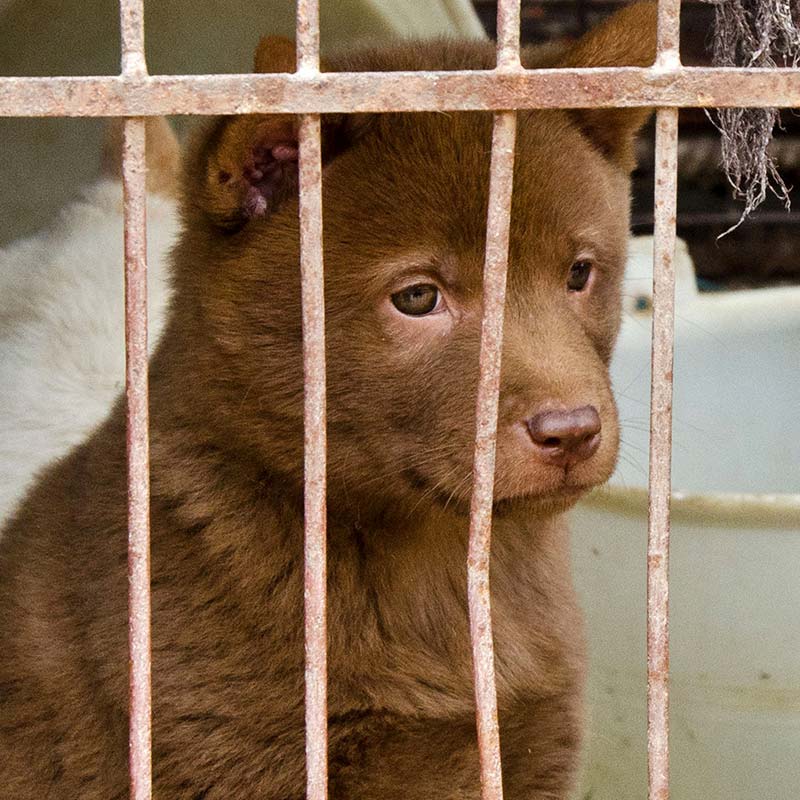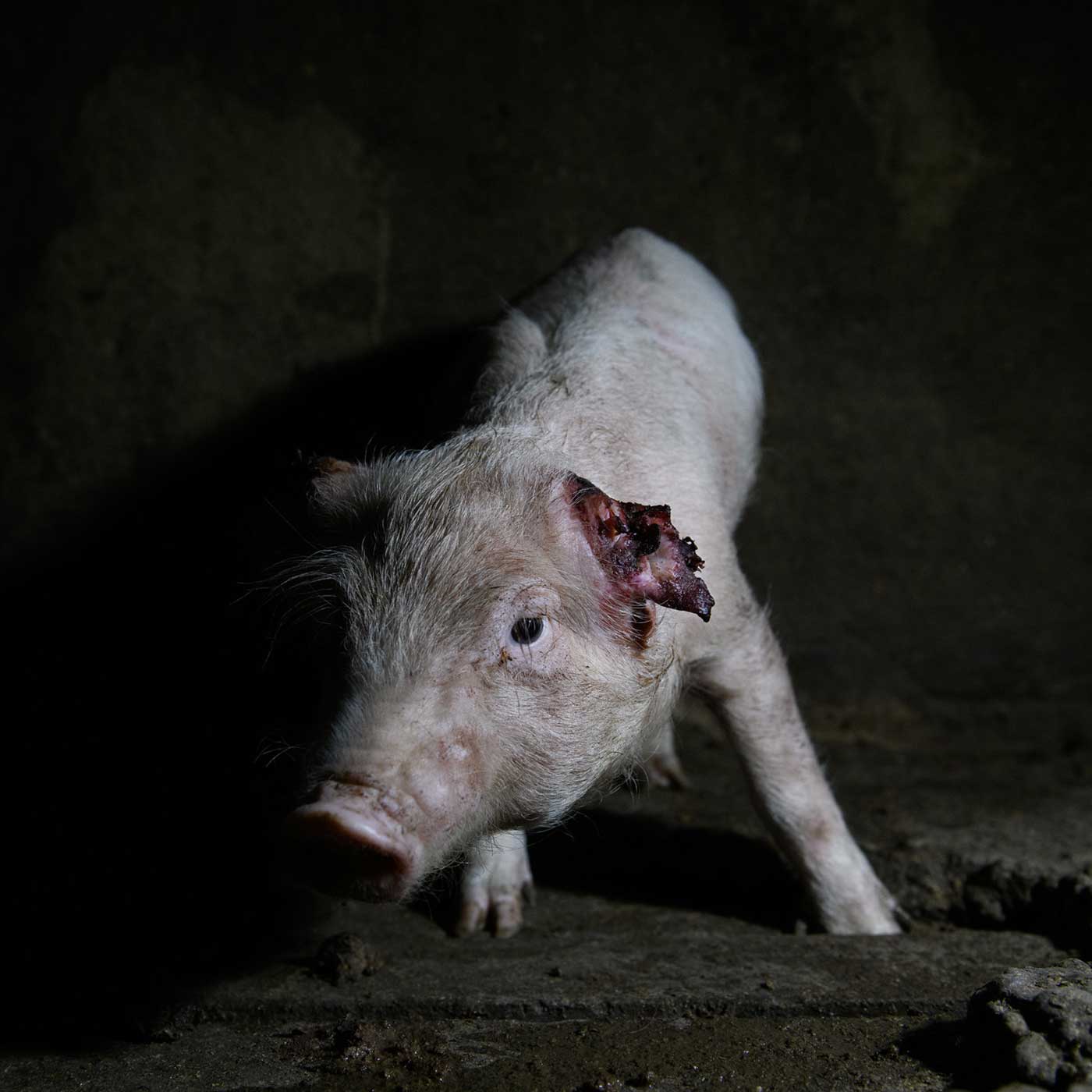
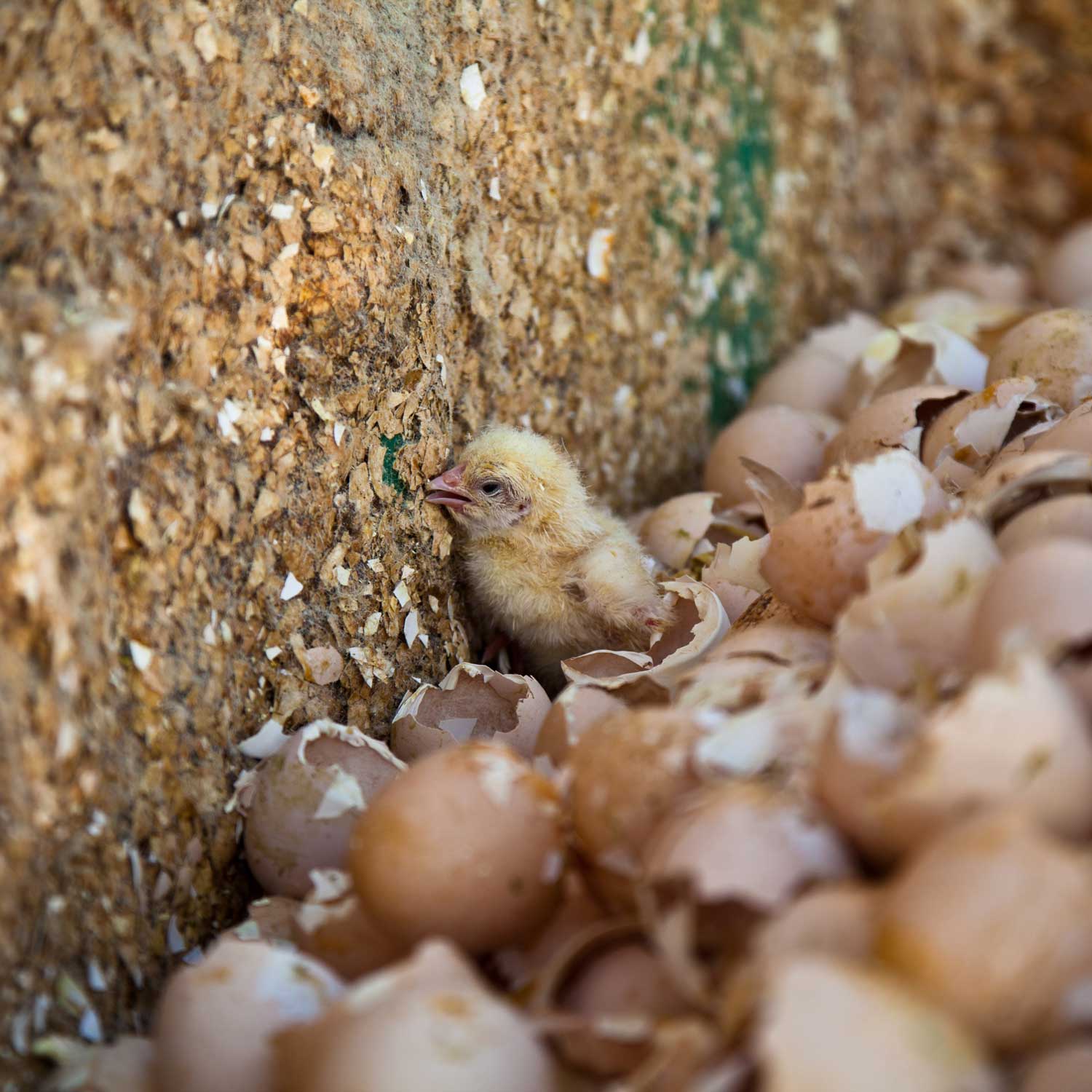
10 Undercover Investigations Exposing What Animals Endure
Since 2006, Animal Equality has investigated over 817 facilities—mostly industrial farms and slaughterhouses—in 13 countries. Our investigators take significant risks to document what’s going on behind closed doors, oftentimes going undercover and working at farms or slaughterhouses for weeks or even months. Investigative footage has helped us get justice for animals through legal action and criminal charges for abusers, helping enact new laws and pushing for industry policy changes.
We believe consumers have a right to know where their food comes from to make more compassionate and informed buying decisions. That’s why we will stop at nothing to expose the truth.
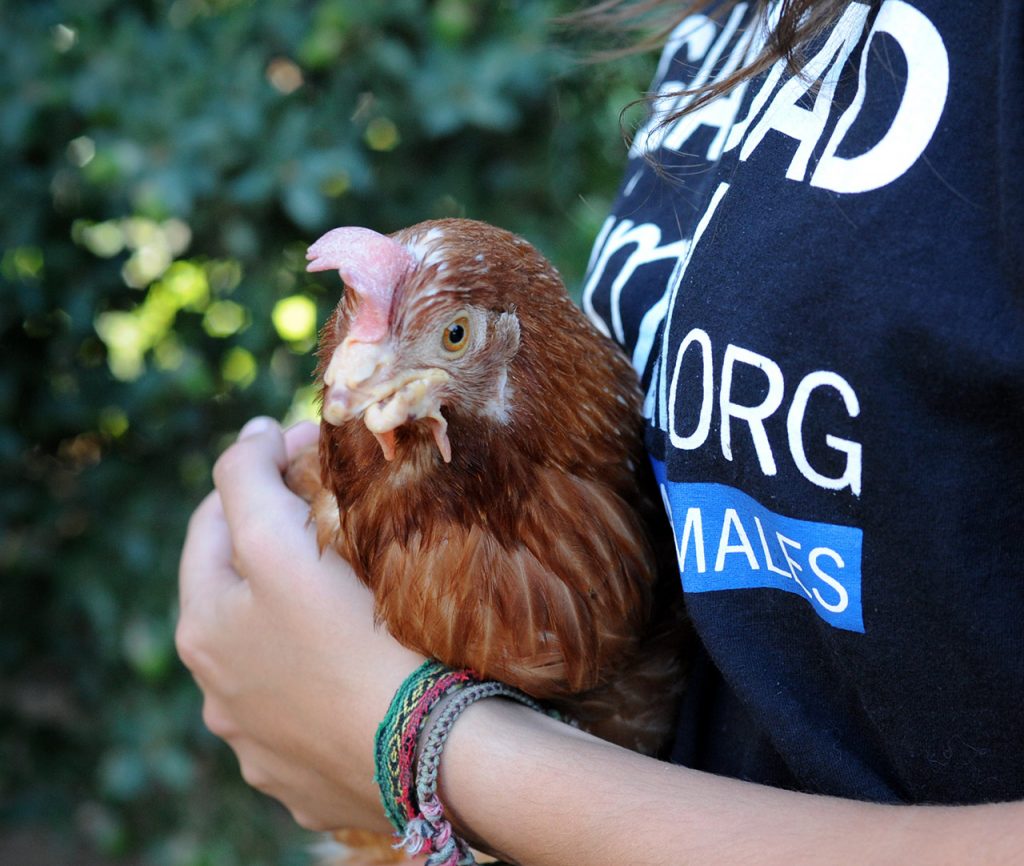
LIVE KINDLY
With rich emotional lives and unbreakable family bonds, farmed animals deserve to be protected.
You can build a kinder world by replacing animal food products with plant‑based ones.
Here are just a few investigations that have stood out over the years.
Severe Neglect at Nebraska Calf Ranch (United States)
In our first US investigation, shocking scenes of prolonged suffering and neglect were brought to light following our investigator’s time at Summit Calf Ranch in Nebraska, a facility housing 11,000 calves and owned by Tuls Dairy, a supplier of Bel Brands, producer of Babybel and The Laughing Cow cheese. Many calves froze to death and endured repeated exposure to extreme temperatures resulting in frozen limbs and the hoof separation from the leg of animals. Some calves died in agony. We turned over our evidence to authorities and are urging criminal charges against those involved.
Wet Markets Exposed (China, Vietnam, India)
Our investigators visited live animal markets in China, Vietnam, and India. They witnessed animals such as deer, raccoons, crocodiles, cats, and dogs living in cramped, filthy conditions, suffering from dehydration, starvation, and disease.
The animals were killed on the spot for customers who wanted fresh meat. These markets are cruel and have been the source of documented disease outbreaks, including SARS, and researchers now believe that COVID-19 likely originated from a wet market. We’re urging the United Nations to view our important footage and recommend banning all wet markets that sell animals.
Lambs Tormented in Illegal Slaughterhouses (Mexico)
Animal Equality investigators in Mexico exposed the torment and killings of lambs and sheep in backyard pens and unregulated slaughterhouses. Fully-conscious lambs are tied up and decapitated, animals are killed in full view of each other, and injured animals are left to bleed to death. Our team in Mexico is now working with lawmakers to criminalize these slaughterhouses and hold those who run them accountable.
Gadhimai: The Largest Ritual Slaughter in the World (Nepal)
Our investigators used drone cameras to document how thousands of buffaloes, goats, and pigeons were mutilated and violently killed during the Gadhimai festival’s latest event in 2019. The Gadhimai Festival hosts the world’s largest ritual animal slaughter and happens every five years. Despite the Nepalese government declaring that ritual slaughter had been banned, the ban was not enforced, and the killings continued.
Animal Equality’s work and other animal protection organizations reduced the number of animals killed by raising awareness—and thus public outcry—surrounding the event.
We worked with the Red Cross to set up a blood donation drive at the event so that participants could honor the deity by spilling their blood instead of an animal’s blood.
The Killing of Tuna for Sushi (Italy)
Every Spring in Italy, bluefin tunas are caught in traps as they migrate to their breeding grounds. Our groundbreaking investigation, which utilized both underwater and above-water photography, documented the horrific scene in which these large animals are pushed to the water’s surface, harpooned, and stabbed as they thrash about and struggle.
The investigation, which was featured in part in the documentary Cowspiracy, shows the harsh reality of the plight of tunas, who aren’t protected by any humane slaughter laws or regulations.
Turkeys Hatcheries, Farms, and Slaughterhouses Exposed (Spain)
The footage captured by Animal Equality investigators in hatcheries, factory farms, and slaughterhouses in Spain depicts the cruelties that are the norm in the meat industry in the United States.
We documented that in turkey hatcheries, the birds that do not meet the standards required by the industry are discarded alive along with the eggshells. They are killed in the trash containers, crushed while still conscious.
Those entering the industry will have part of their sensitive beaks seared off and be forced to live in confinement until they’re slaughtered.
Hens Confined in Cages for Eggs (United Kingdom)
An investigation by Animal Equality reveals scenes of severe animal suffering on a Dorset farm supplying ‘Big & Fresh’ eggs stocked by major UK retailers.
More than 500,000 birds were kept in metal cages in windowless sheds. Our cameras documented that the caged hens were only checked-on once in four days by farm staff, a clear violation of welfare laws.
Months-Long Investigation into a Pig Farm (Italy)
In collaboration with the country’s national media outlet TG2, Animal Equality in Italy exposed the conditions in a factory farm that raised pigs for meat. Despite the region’s animal welfare laws, the thousands of pigs living on the farm were forced to endure shocking conditions, including:
- decomposing and mummified bodies of pigs present
- a worker who killed a pig by throwing him or her against a wall
- pigs forced to live in cages so small that they could hardly move, resulting in them being covered with wounds and bedsores.
Animal Equality in Brazil Documents the Meat Industry’s Impact (Brazil)
After the devastating wildfires decimated the Amazon Rainforest in the Fall of 2019, Animal Equality Brazil sent investigators to Northern Brazil to witness the increased deforestation of the Amazon rainforest and its connection to animal agriculture. Raising animals for meat is mostly responsible for the deforestation of rainforests and the degradation of other land.
The meat industry intentionally sets fires to be able to turn forests into pasturelands for cows or soy plantations to grow feed for animals raised for food. Our footage shows that the devastation of the Amazon rainforest for animal agriculture is extreme and far-reaching.

